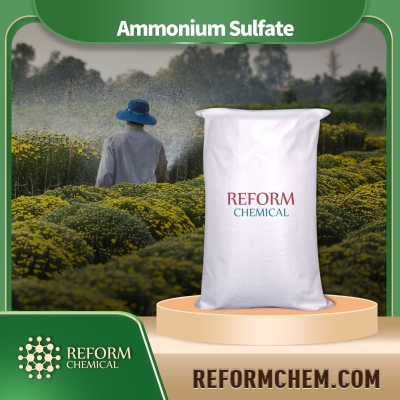-
Categories
-
Pharmaceutical Intermediates
-
Active Pharmaceutical Ingredients
-
Food Additives
- Industrial Coatings
- Agrochemicals
- Dyes and Pigments
- Surfactant
- Flavors and Fragrances
- Chemical Reagents
- Catalyst and Auxiliary
- Natural Products
- Inorganic Chemistry
-
Organic Chemistry
-
Biochemical Engineering
- Analytical Chemistry
-
Cosmetic Ingredient
- Water Treatment Chemical
-
Pharmaceutical Intermediates
Promotion
ECHEMI Mall
Wholesale
Weekly Price
Exhibition
News
-
Trade Service
Since the executive meeting of the State Council passed the "Pesticide Management Regulations (Revised Draft)", the state will further promote the reform of pesticide administrative approval, raise the registration threshold, and strengthen pesticide supervision and management to ensure agricultural production safety
.
In this management regulation, these 3 items will affect the development of pesticide companies in the future
.
1.
The main points of registration access: to meet the requirements of green development and improve the scientific level of pesticide registration.
The "Pesticide Management Regulations (Revised Draft)" clearly stipulates that the registration test unit shall be recognized by the Ministry of Agriculture, the new pesticide registration test shall be approved by the Ministry of Agriculture, and others shall be reported to the province Grade agricultural department for the record
.
This provision will apply pesticide registration and formulation of residue limit standards, assess the toxicological and environmental impact of pesticides in accordance with the "Administrative Measures for Pesticide Registration Tests", and use the results of risk analysis as the basis for approval
.
2.
Key points of market supervision: The entry standard is improved, and the daily supervision is strict.
The "Revised Draft" stated that a pesticide quality and safety traceability system will be established to record the production, packaging, transportation, and sales of pesticides
.
The production, processing and sales of pesticides are well documented
.
At present, Zhejiang Province has established two platforms (basic database for business units and basic commodity database), and 3,715 agricultural enterprises in 87 cities (counties) have used the system
.
In accordance with the principle of “double random and one open”, two “blacklists” (problem companies, problem products) have been established, and methods such as routine spot checks, key spot checks, and special spot checks are organized
.
Key spot checks and special spot checks should be "problem-oriented", highlighting key enterprises and problem products
.
Strengthen daily inspections so that counterfeit and inferior products have no place to hide, and illegal companies have no market space
.
3.
Key points of reform and development: Promote structural reforms on the supply side of pesticides and guide enterprises to reduce production capacity to make up for shortcomings.
In the No.
1 document this year, the most emphasized is the structural reform on the agricultural supply side.
At the same time, the grain corn area will be reduced by 10 million mu this year.
With the reduction in corn production, the corresponding sulfonylurea herbicides will also be affected
.
Pesticide supply-side reform will also be adjusted along with the general direction of agriculture
.
Use registration requirements, renewal checks, production license conditions, green pest control (low-toxic biological pesticides) subsidies or government procurement projects, etc.
, to guide pesticide companies to reduce the production capacity of old equipment, low-efficiency and high-volume products, and increase production capacity.
.
In this management regulation, these 3 items will affect the development of pesticide companies in the future
.
1.
The main points of registration access: to meet the requirements of green development and improve the scientific level of pesticide registration.
The "Pesticide Management Regulations (Revised Draft)" clearly stipulates that the registration test unit shall be recognized by the Ministry of Agriculture, the new pesticide registration test shall be approved by the Ministry of Agriculture, and others shall be reported to the province Grade agricultural department for the record
.
This provision will apply pesticide registration and formulation of residue limit standards, assess the toxicological and environmental impact of pesticides in accordance with the "Administrative Measures for Pesticide Registration Tests", and use the results of risk analysis as the basis for approval
.
2.
Key points of market supervision: The entry standard is improved, and the daily supervision is strict.
The "Revised Draft" stated that a pesticide quality and safety traceability system will be established to record the production, packaging, transportation, and sales of pesticides
.
The production, processing and sales of pesticides are well documented
.
At present, Zhejiang Province has established two platforms (basic database for business units and basic commodity database), and 3,715 agricultural enterprises in 87 cities (counties) have used the system
.
In accordance with the principle of “double random and one open”, two “blacklists” (problem companies, problem products) have been established, and methods such as routine spot checks, key spot checks, and special spot checks are organized
.
Key spot checks and special spot checks should be "problem-oriented", highlighting key enterprises and problem products
.
Strengthen daily inspections so that counterfeit and inferior products have no place to hide, and illegal companies have no market space
.
3.
Key points of reform and development: Promote structural reforms on the supply side of pesticides and guide enterprises to reduce production capacity to make up for shortcomings.
In the No.
1 document this year, the most emphasized is the structural reform on the agricultural supply side.
At the same time, the grain corn area will be reduced by 10 million mu this year.
With the reduction in corn production, the corresponding sulfonylurea herbicides will also be affected
.
Pesticide supply-side reform will also be adjusted along with the general direction of agriculture
.
Use registration requirements, renewal checks, production license conditions, green pest control (low-toxic biological pesticides) subsidies or government procurement projects, etc.
, to guide pesticide companies to reduce the production capacity of old equipment, low-efficiency and high-volume products, and increase production capacity.







